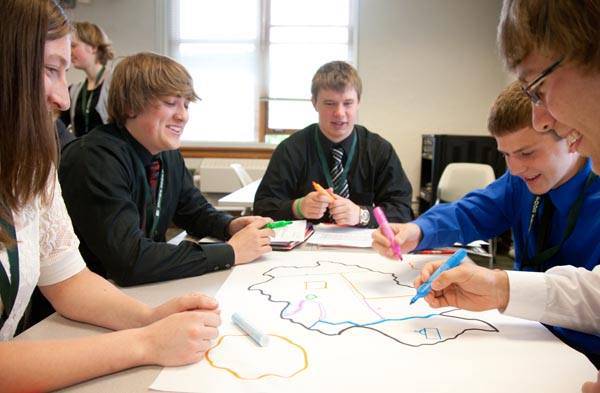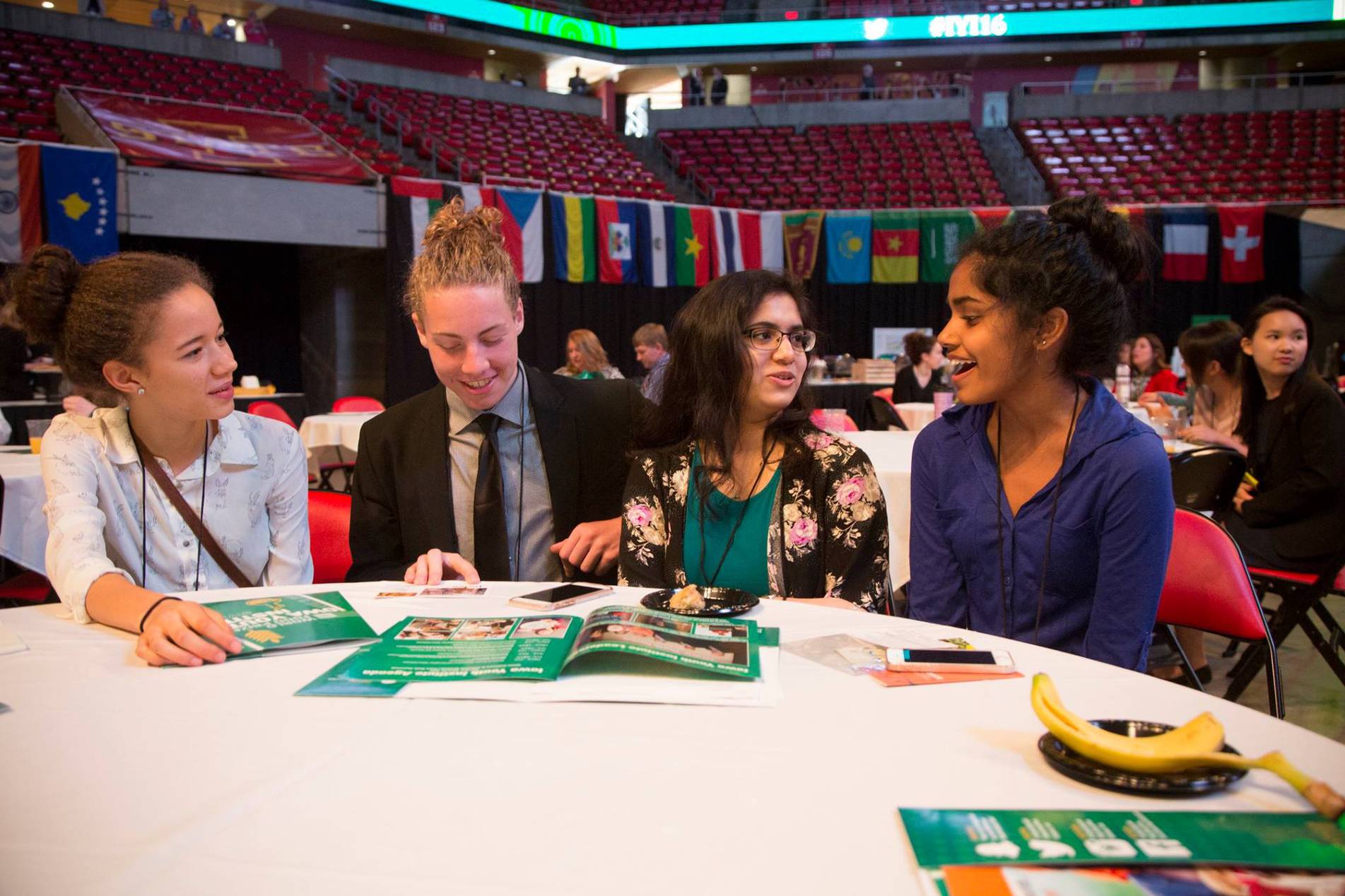Starting the Conversation
The topic of food security is very broad and complex so it's difficult to know where to start. By creating a school-based youth roundtable, teachers can incorporate project-based learning skills that encourage students to think critically, problem solve, and collaborate with their classmates, while also meeting the content standards of the classroom. The format of a school-based event can vary, from small classroom discussions to community-wide events that allow students to present to an authentic audience of local experts in science, business, policy, and non-profit agencies.
How to Create a School-Based Roundtable:
Step 1: Download the World Food Prize Global Challenge Curriculum here.
This curriculum is used to prepare students for presenting their own unique ideas to address hunger and poverty with food security experts at the Iowa Youth Institute but it can also be used as a classroom resource to expose your students to the underlying causes of hunger. Students can choose from a variety of topics related to food security including plant health, nutrition, sustainable agriculture, policy, and animal health.
Once students have identified a topic affecting food security within a specified country ask them to propose a solution to address the issue. This can be done in the form of a poster presentation, research paper, or other forms of multimedia.
Step 2: Invite community members and/or school administrations to attend student presentations.
Invite members of your community who work at local non-profits or in the agricultural industry to attend student presentations to allow students to present to an authentic audience and receive feedback from real-world experts.
*Educators can also pair a school-based roundtable with another community event such as a school-wide meal packaging project or food donation drive.
Step 3: Follow up with community members who attended the roundtable.
Invite attendees to be guest speakers in your classroom or provide tours of non-profits or agricultural facilities in your community. For ideas on connecting with organizations listed in the Iowa Hunger Directory, contact Madeline Goebel at mgoebel@worldfoodprize.org.


Learning outcomes can apply to standards in:
- Social Studies
- Agriculture
- Science
- Speech/Debate
- Business
Tips from a teacher:
"Our Global Studies class offers the World Food Prize paper as an extension during the Africa Unit. Students have the option of writing about an African country, allowing them to do an in-depth analysis rather than a general overview. We host a mock youth institute at school so students can present to their peers prior to attending the statewide youth institute."
- Kathy Cooper
Northview Middle School, kathryn.cooper@ankenyschools.org

